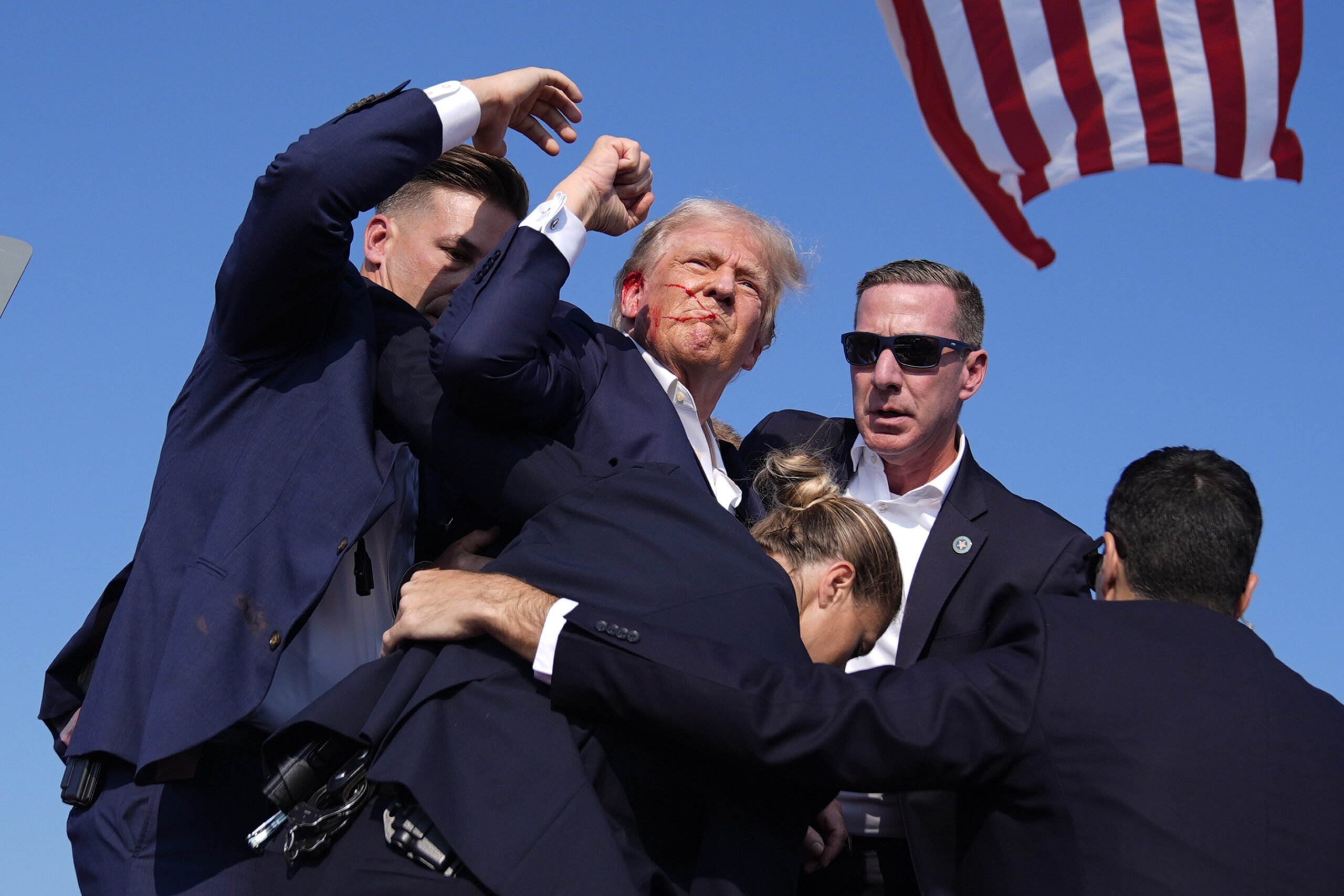FLASHBACK: The New York Times Book Review Published a Trump Assassination Fantasy During His First Term

AP Photo/Evan Vucci.
Nearly every prominent voice across the country — including many of former President Donald Trump’s most fervent opponents — stood together in condemning the attempt on his life over the weekend.
Shortly after a bullet grazed Trump’s ear, coming within inches of ending his life, The New York Times put out an editorial headlined “The Attack on Donald Trump Is Antithetical to America.”
“Any attempt to resolve an election through violence is abhorrent. Violence is antithetical to democracy. Ballots, not bullets, should always be the means by which Americans work through their differences,” declared the Gray Lady’s editorial board.
But the laudable sentiments expressed by the Times‘ leadership should be accompanied by self-reflection. Less than six years ago, it touted a Trump assassination fantasy in its Book Review section.
“How It Ends,” a short story, was published alongside several other fictional narratives meant to “Imagine Trump’s Next Chapter.”
Here’s how the collection was introduced by the Times:
Our focus here at the Book Review is on books and stories, but also on how the books being written and read reflect the world outside of books. And one of the biggest stories out there, of course, is the Mueller investigation and the relationship between Trump and Putin. It’s hard not to speculate about what might happen next. To that end, we thought: Who better than some of today’s most talented spy and crime novelists — Joseph Finder, Laura Lippman, Jason Matthews, Zoë Sharp and Scott Turow — to conjure possible outcomes?
Sharp, the author of “How It Ends,” imagined a world in which a Russian assassin arrived in Washington, D.C. to kill Trump to cover up his country’s role in installing him as president. Here are the concluding paragraphs of the story:
The Russian waited until they were a few steps past before he drew the gun. He sighted on the center of the president’s back, and squeezed the trigger.
The Makarov misfired.
The Secret Service agent at the president’s shoulder heard the click, spun into a crouch. He registered the scene instantly, drawing his own weapon with razor-edge reflexes.
The Russian tasted failure. He closed his eyes and waited to pay the cost.
It did not come.
He opened his eyes. The Secret Service agent stood before him, presenting his Glock, butt first.
“Here,” the agent said politely. “Use mine. …”
The message behind the prose is not hard to discern: Donald Trump deserves to die, and a patriotic American in his right mind would work toward that end.
To be disgusted by Sharp’s message and the Times‘ platforming of it is not to express retroactive outrage. It was a disgusting, even barbaric thing to do at the time, and it is every bit as reflective of the degradation of American political culture as the worst of Trump’s own rhetoric.
If the Times‘ lament of that degradation is sincere, it should start with the beam in its own eye.
This is an opinion piece. The views expressed in this article are those of just the author.






